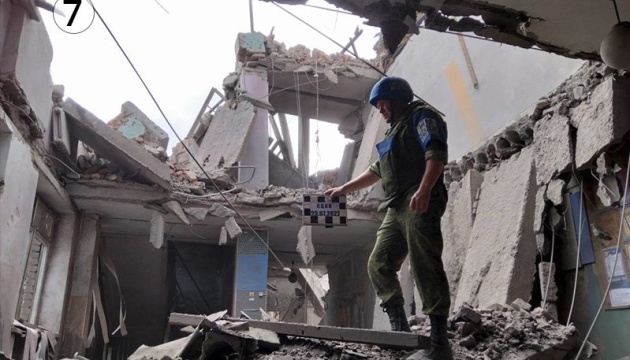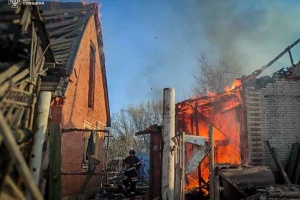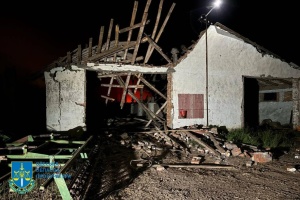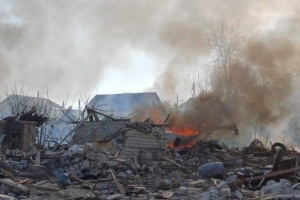
Russians did not let people out of barracks ahead of terrorist attack in Olenivka – investigation
Maria Klymyk, the author of the investigation, journalist of the Media Initiative for Human Rights (MIHR), said this during the presentation of the investigation into the mass murder of Azov Regiment members held captive in Olenivka penal facility No. 120 at the Media Center Ukraine–Ukrinform.
According to her, before the tragedy, on the evening of July 28, all detainees were called, lined up, checked against the lists, and taken back to the barracks one by one.
"[They] were told that it was forbidden to go outside and that everyone must stay in the barracks. They [Russians] said that if someone wanted to go to the toilet, only one person at a time was allowed to go. Before that, in other barracks, they had the opportunity to leave [the building] until bedtime any time, they could even sleep outside, but in this part of the barracks they were forbidden to even spend the night outside,” she said.
Klymyk noted that the Ukrainian soldiers asked to stay outside because it was very hot in the barracks.
"The windows were tightly closed it was very stuffy as there were many people there. But they were forbidden to do anything at all," said the MIHR representative.
Separately, she said that the day before people from this barrack had gone around all the places accessible to them and had not found anything suspicious.
According to her, a week before the incident, rumors were going around the penal facility about certain lists, which, as it turned out later, concerned exactly 198 Azov Regiment members, who were later transferred to the industrial zone no one knew about before.
"However, a week before, repairs were started in this abandoned territory. Prisoners from other brigades secretly put things in order, quickly prepared a place, so that later the Azov members were transferred there. And they were brought to that industrial zone," Klymyk said.
The MIHR representative added that the Azov members themselves did not understand the principle they were selected under until the last, and they still do not know this.
Answering the question of why the tragedy in Olenivka happened and why it was done, the author of the investigation, executive director of the Media Initiative for Human Rights Tetiana Katrychenko expressed the opinion that the reason was not to hide the traces of people's torture.
"Azov members said that they had only one wounded person in this barrack, who could not go out to line up. Presumably, there was an intention that certain actions should be taken against the representatives of the Azov Regiment, if not some show trial, then something else. But in reality, the intention is unknown why exactly these servicemen [were chosen]," she said.
As reported, on the night of July 29, 2022, the Russian Federation committed a terrorist attack, blowing up the barracks of the penal facility in Olenivka, where Ukrainian prisoners of war were held. At least 50 defenders of Azovstal steelworks were killed then.
In January 2023, UN Secretary-General António Guterres decided to disband the previously created fact-finding mission into the terrorist attack in Olenivka due to the impossibility of bringing experts to the scene.
On July 25, UN High Commissioner for Human Rights Volker Türk denied Russia's claim that the Olenivka facility was allegedly struck with a HIMARS missile and condemned the lack of responsibility for the killings of Ukrainian prisoners of war.




